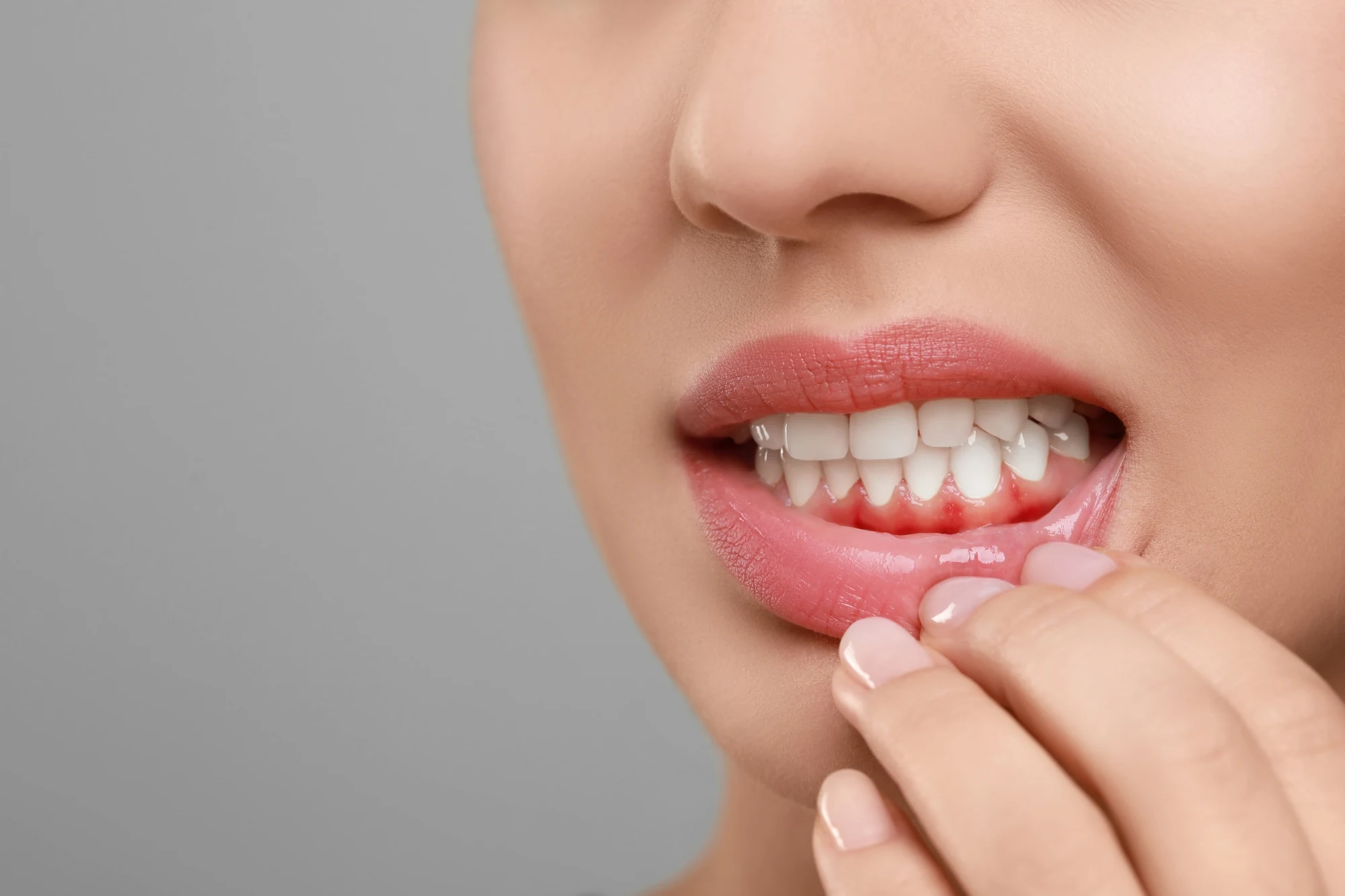
Gum disease - causes and symptoms
At first, problems with gums may show no visible symptoms. That is why it is so important to visit the dentist regularly and to diagnose the disease early. Read on to find out more about the causes and treatment of gum problems.
Gum disease is caused by plaque – a semitransparent, sticky film of bacteria that forms on your teeth and can build up to create damaging toxins if you don't have a proper oral-care regimen. The beginning stage of this plaque buildup is a characteristic of gingivitis. Plaque itself is caused naturally by the things you do every day, such as eating or breathing.
There are several tell-tale signs of gum disease. They include:
Bleeding gums (especially when you brush and floss)
Tender, swollen gums
Persistent bad breath
Loose teeth
Is gum disease inevitable?
Fortunately, it's not. While we all have plaque (it's naturally occurring), there are several easy steps you can take every day to help keep your smile healthy for life. And while you might be familiar with each step, you might not realize how important it is that you do all the steps together, every day.
What should I do if I think I have gum disease?
Don't worry; you're not alone. More than 80 percent of adults have some form of gum disease. In most cases, you can help reverse, and even protect against, its effects. So how do you treat gum disease? Great question!
Here are some signs of gum problems:
Gums that are red or puffy or bleed when you brush or floss. These are early forms of gum problems. They can usually be treated with good oral care.
Tooth pain or sensitivity. Gums that have pulled away from the teeth can make teeth sensitive to hot or cold foods or drinks.
Persistent bad breath
Adult teeth that are loose or develop gaps; changes in the way your teeth fit when you bite down. This is the most serious form of gum problems, called periodontitis.
Quick facts about gum problems
Gum problem is an infection that can affect gums and the surrounding bone.
Gum problems start when germs in dental plaque cause gums to become red and puffy, and sometimes bleed.
You can help prevent gum problems by brushing and flossing your teeth twice a day.
Many people don't know they have gum problems. That's why it's important to see your dental team regularly.
One of the causes of tooth loss in adults is gum problems.
Here are some tips to help prevent gum problems and periodontal disease:
Brush teeth and gums. Floss between teeth. Pay special attention to your back teeth. They are likely to have more plaque on them because they are hard to reach.
Change your toothbrush every 3 months. Bristles that are worn remove less dental plaque.
If your gums bleed, don't stop brushing and flossing your teeth. Use a toothbrush with soft bristles so you don't hurt your gums. See your dental team if the bleeding continues.
Visit your dental team regularly for teeth cleanings and check-ups, check your teeth and gums, in case they require treatment, you increase your chances of keeping your teeth for a lifetime. The most important thing is not to allow dental plaque to develop, cause problems with gums, and endanger your teeth and gums. Tell your dental team if you are pregnant or have diabetes. These conditions make it harder for the body to fight gum problems.
Check your gums in the mirror often. Look for changes in colour or texture. If you think you have gum problems, see your dental team.
Related Articles
Sign Up
for expert advice and exclusive offers




